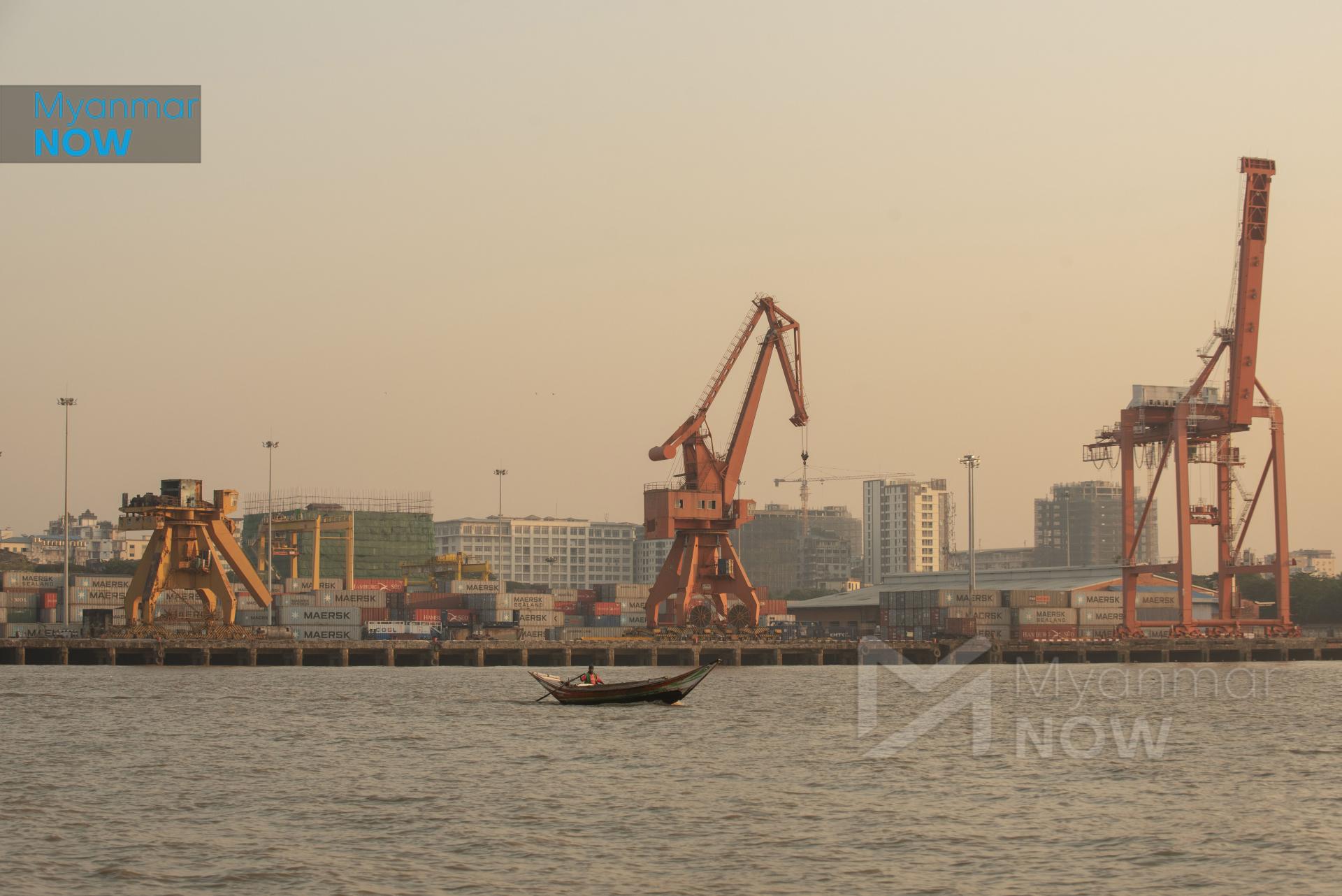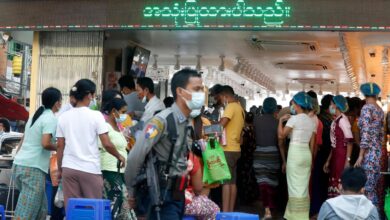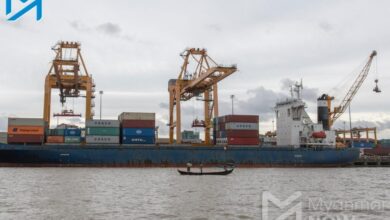
Myanmar’s “critically weak economy” will rebound by just 1% this year after shrinking by almost a fifth because of the combined effects of the COVID-19 pandemic and last February’s military coup, the World Bank has said.
The expected growth in the year to September 2022 reflects “recent signs of stabilisation” in some areas almost a year after Min Aung Hlaing’s power grab plunged the country into conflict and economic turmoil, the lender said in its latest Myanmar Economic Monitor.
But it won’t be enough to undo the damage that led the bank to predict poverty rates would double and estimate that the economy is 30% smaller than it would have been without the pandemic and the coup.
The economy shrank by 18% in the year to September 2021 amid nationwide anti-junta strikes, mass military-led displacement, urban and rural guerrilla warfare, COVID lockdowns, and the exit from the country of numerous foreign investors.
“The situation and outlook for most people in Myanmar continues to be extremely worrying,” said Mariam Sherman, the Bank’s country director for Myanmar, Cambodia and Lao PDR.
She added: “Recent trends of escalating conflict are concerning–firstly from a humanitarian perspective but also from the implications for economic activity. Moreover, with a low vaccination rate and inadequate health services, Myanmar is highly vulnerable to the Omicron variant of COVID-19.”
One sign the economy is stabilising is an increase in mobility–people moving around–back to 2020 levels, though it “remains about 30 percent below pre-pandemic levels for retail, recreation, and transport,” the Bank said.
More mobility is “likely to have supported the services sector, though overall consumer demand continues to be weak due to recent shocks to incomes and employment,” it added.
In the manufacturing sector, “output and employment also appear to be stabilising, and exports have recovered in recent months,” it said.
As the value of the kyat has plummeted, the cost of necessities like food and fuel has spiked. Meanwhile companies reported “sharp reductions in sales and profits, cashflow shortages, and a lack of adequate access to banking and internet services,” the Bank said.
“Ongoing economic pressures are having a substantial effect on vulnerability and food security, particularly for the poor, whose savings have been drained as a result of recent shocks,” it added.
Half of all companies told the Bank in a recent survey that they saw disruption to their supplies of inputs and raw materials, blaming increases in costs, logistical problems and the falling kyat.
“Farmers continue to be affected by higher prices for key inputs, restricted access to credit, and ongoing logistics constraints,” the Bank said,
And the coup is expected to inflict long term economic damage. “Most indicators suggest that private investment has fallen markedly, and previously viable projects are becoming unviable as demand remains weak, the cost of imports has risen, and kyat-denominated revenues are worth less in foreign currency terms,” said Kim Edwards, the Bank’s senior economist for Myanmar.
“In addition, lost months of education, together with large increases in unemployment and displacement, will substantially reduce human capital, skills and productive capacity over the longer term,” he added.



